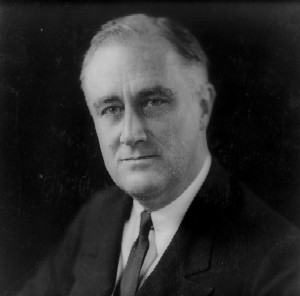The Triumph of Propaganda
 It is difficult anymore to avoid a most uncomfortable truth. Everywhere one looks, propaganda is strongly and stridently present -- and even more disturbing -- apparently accepted as a valid representation of reality.
It is difficult anymore to avoid a most uncomfortable truth. Everywhere one looks, propaganda is strongly and stridently present -- and even more disturbing -- apparently accepted as a valid representation of reality.Propaganda masquerades as television news channels and taints other sources of news regularly and pervasively. It floods the airwaves around us and consumes large amounts of bandwidth on the internet in the form of commercial advertising. It is practiced by governments, churches, corporations, and individuals with agendas of every stripe. It is present in newspapers, magazines, textbooks, ancient religious works and even apparently innocuous handouts at national parks.
From the moment we are born, the neutrally-named activity called "socialization" seeks to strongly imprint a common vision of reality into our brains whether that vision is particularly functional or not. In other words, propaganda has triumphed, and it triumphed long ago.
People in the U.S. have been psychologically conditioned to vote against their own interests while fearfully denouncing "socialism", a form of government about which they truly know very little. They have been taught to despise unions even though functional unions are a necessary counter-balance to overbearing corporations. The government's highest court advocates for the rights of corporations to unduly influence what was supposedly a government "of the people, by the people, and for the people".
Perhaps it is no surprise, in such a dysfunctional and distorted atmosphere, that the people turn to "entertainment" for distraction. Ironically, they can find no relief there -- for the entertainment industry is as corporate as any other corporation and an industry that produces extraordinarily powerful propaganda according to the whims of directors whose own dedication to truthful exposition is highly suspect. Beyond the content of entertainment, it is also produced in large quantities and multifaceted forms whose sole apparent purpose is to endlessly distract the bulk of the population for significant periods of their waking lives.
We look upon a country in which the housing model is collapsing, in which energy for transport and heating is increasingly scarce and expensive, in which the economy was deliberately weakened in the name of a specious concept referred to as globalism, in which the public school system is at once failing to provide its students with critical thinking skills and under sustained assault by radical agendas, in which the infrastructure has been allowed to dangerously deteriorate, and in which a war economy has been maintained for 65 years much to the detriment of other sectors, some of which are mentioned above.
Yet, the most amazing aspect of it all is the lack of vigorous questioning, the lack of vigorous reporting by journalists, or rather, a general lack of vigor, not to mention rigor, by anyone, at all. People are more concerned with Oprah's personal life or with which (corporate-sponsored) team will win the football game than they are with the terribly important challenges facing their nation, and in fact, all nations. Propaganda has conditioned us to function in certain ways, even as it becomes ever more apparent that these modes of function are nonsensical in terms of the environments we face.
At some point, the terrible challenges facing us will no longer have their reality denied. It will be likely shaky, or nonexistent, sources of energy that will deal the death blow to the fantasy world in which we have placed so much stock thanks to the endless propaganda that pervades our existence. For at some point, there will be too much cold, too much hunger, too much violence, and too little shelter and stability for the propaganda not to be overwhelmingly rejected, even if such happens for only a few precious moments before, as Carlos Castenada might have phrased it, we face our own deaths.
At the moment, though, propaganda has triumphed. Even when we recognize it for the mental feces that it is, our victories in this regard are often short-lived and we rarely attempt to maintain serious vigilance against further assaults on our capacity for critical thinking ... because it easier to succumb, because "life" keeps us on the run from situation to situation, and because everywhere we look, there is no shortage of meaningless distraction to keep us from seriously considering what is really going on.
Veritas vos liberabit.







